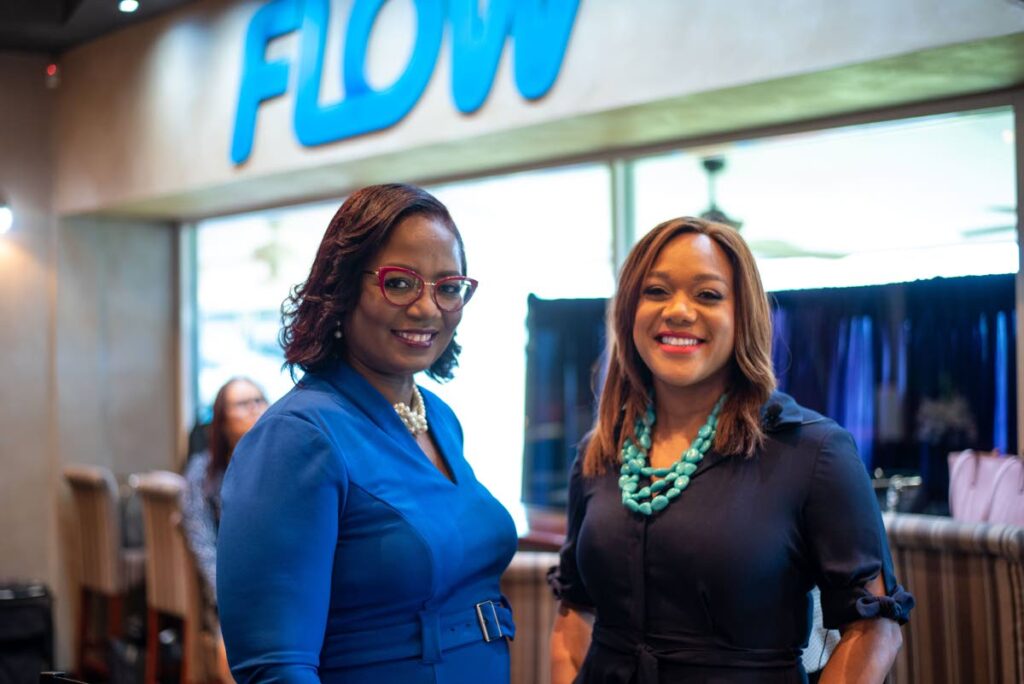Flow managing women's empowerment through gender co-operation

Flow Trinidad and Tobago is seeking to reduce the gender gap in its management positions and hopes other companies will follow suit.
In recognition of International Women’s Day, the company held discussions with female department heads at the Queen’s Park Oval, Port of Spain last Friday.
Although Flow TT has ten women and two men in its top executive management positions, vice president Simone Martin-Sulgan said females generally still sought endorsement from their male peers.
She said while women have had to be tough and emboldened with goals in order to move forward in their careers, the support of men, in the workplace and otherwise, was important.
Martin-Sulgan said having male mentorship and sponsorship for women should be explored more because a lot of executive positions were still held by men.
“If you want to go far, you have to work together, and that is where getting male endorsement is really the key to actually progressing. You need to have men to speak on your behalf. You need male mentorship and male sponsorship.
“That is how they (companies) will endorse your name, put you forward for projects and give you visibility. You need to have sponsorship, at least one person who leverages their professional credits for you and your skillset and attitude to get forward. I think that is the missing piece," she explained.
Martin-Sulgan believed this was a key ingredient in her becoming the first woman to hold the position of vice president at Flow TT. She said it was never a position she thought of attaining, and owning vulnerabilities and putting aside pride and egos can go a long way.
“I never expected to end up here. Growing up, a lot of women in my age group were expected to become a doctor or a lawyer or find some middle-management position after school and settle in until retirement. Being appointed to this position was definitely something I never expected to achieve.
“You need to be able to say, 'I don’t have all the answers, but I want to learn, and I am coming to you for help, because my ultimate goal is to achieve X. Do you think you can help me get there?'” Martin-Sulgan advised.

She added that there would still be bias and gender-based discrimination in the workplace and advised women to take charge and speak up.
“Women should feel emboldened enough to speak up, because chances are you are not the only person experiencing it, and there is something about strength in numbers. So being able to feel comfortable to express and share experiences are something that I would endorse.”
Flow TT, she said, was also investing in measures and policies for equal access for opportunities in the workplace, starting with engaging young people and maintaining comfortable relationships and partnerships between males and females.
“Future Tech Stars was recently launched: it is where 800 young girls who are interested in coding, for example, are involved. We are creating a generation of young females who are comfortable and actually see employment in tech as a viable option.
“It is the same for our men. It is about letting them know they too play a part in progressing agendas and that their role is still very important, and they are supposed to be active.
“It is a partnership. It is like any good marriage where males and females are working together to put forward a much better outcome,” Martin-Sulgan said.
In addition to promoting women leaders, Reneasha Simmons-Phillips, head of people team (Trinidad), said the males in the company should not be disregarded, and pointed out that simple things, such as parental leave, go a long way.
She explained the company had adjusted its parental leave policy,
“It is our expanded version of maternity leave, where it covers all categories of families. We have paid leave – up to 16 weeks for birthing mothers and eight weeks with full pay for fathers.”
In TT, under the Maternity Protection Act and the Masters and Servants Ordinance, a woman is entitled to 14 weeks' paid leave, and if her baby died before she left for maternity leave or in childbirth, she is still entitled to the rest of her maternity leave. Paternity leave is not mandatory by law, but some institutions have made it a part of their regulations; the provision is unique to the organisation.

Comments
"Flow managing women’s empowerment through gender co-operation"